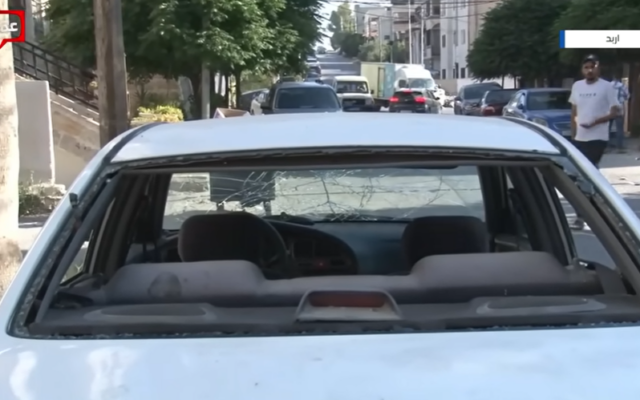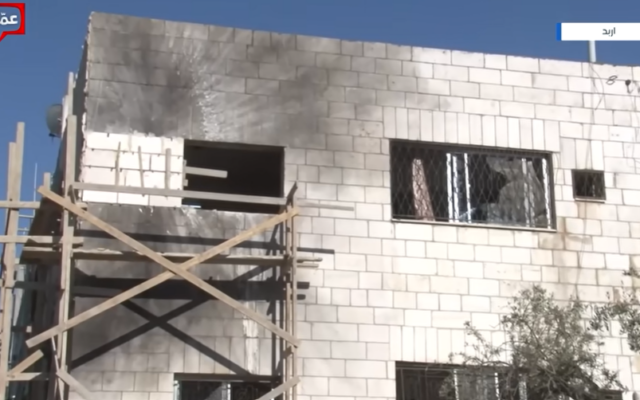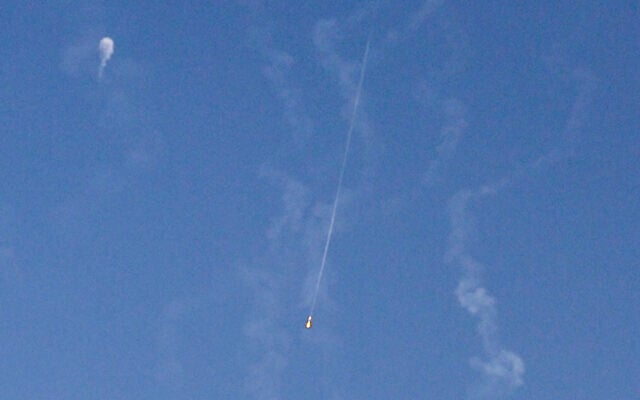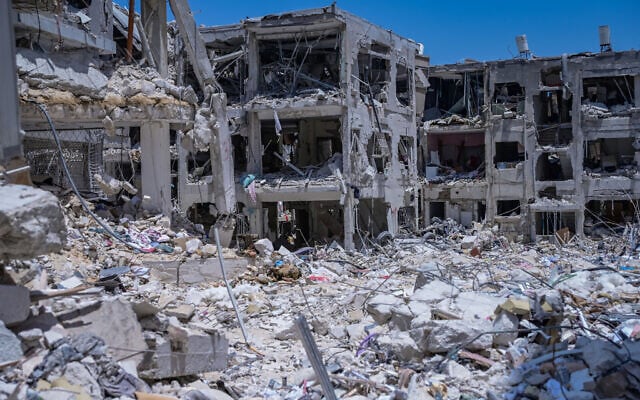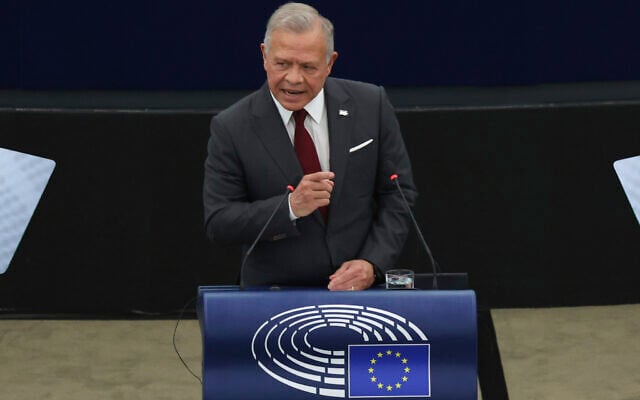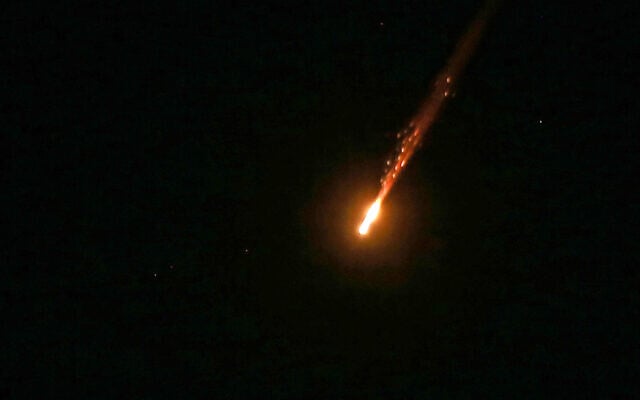


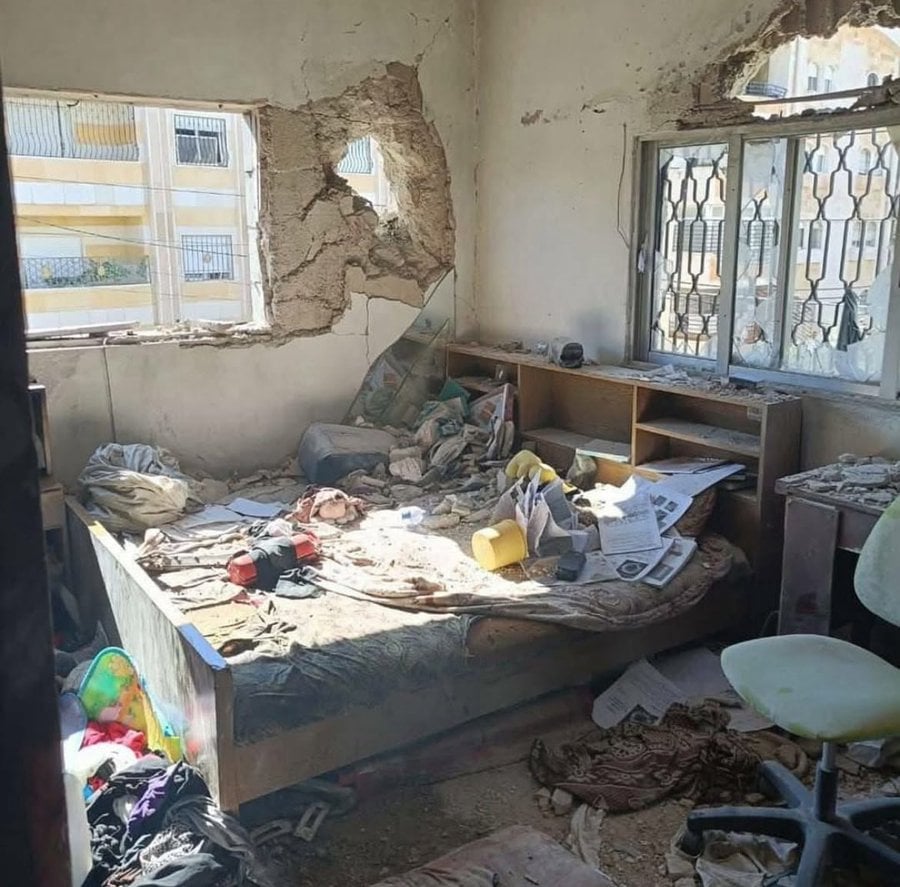
For the past 11 days, the kingdom of Jordan has found itself caught in the literal middle of the Israel-Iran war, turning its airspace into a battleground where ballistic missiles meet interceptors and drones are knocked out of the sky.
Falling missile debris, interceptor shrapnel, and explosive drones have injured several Jordanians and caused significant property damage around the desert country during the hostilities.
Aside from the physical danger, the conflict has placed Jordan in a precarious position diplomatically. The kingdom is sandwiched between an Israel with which it shares an American patron and discreet security cooperation but little love, and Iran, a somewhat friendly regional power that wields considerable sway. Amman maintains diplomatic ties with both.
Unlike the Palestinians, Jordan does not have deep emotional ties with Iran, however. Instead, it leans more toward the pro-Western camp dominated by Arab Gulf allies that oppose Iran. It is also a staunch partner of the United States, which backs Israel and launched a direct strike on Iranian nuclear facilities over the weekend.
According to Jordanian authorities, seven civilians in the country have been injured due to the hostilities since Israel began attacking Iran on June 13. The toll includes a boy, 5, and a girl, 12, who were wounded when a drone, apparently shot from Iran, crashed near al-Azraq in northeastern Jordan.
Their conditions were not disclosed. According to Jordan’s General Security Directorate, three homes and two vehicles were damaged in the same incident.
On June 14, as Iran barraged Israel with volleys of missiles loaded with massive explosive warheads, “fragments of foreign objects” fell in the southern Irbid suburb of Aydoon, some 25 kilometers (16 miles) from the Israeli border. The pieces slammed into dozens of cars and homes, and left five Jordanians with non-life threatening injuries.
“We woke up in the morning to a strange sound, and saw that fragments had fallen inside the house and shattered glass,” Abd al-Rahman al-Radadweh, a resident of Aydoon whose home was hit, told a Jordanian news channel. “My brother, sister, and father were injured, and two of my cousins were also hurt when the missile fell on their house.”
A more serious event, which caused most of the injuries reported so far in Jordan, occurred earlier that week, on June 14, in Aydoon, located in the southern Irbid district near the Israeli border, a day after Israel began its strikes on Iran. According to Jordanian media, “fragments of foreign objects” fell in the area, destroying dozens of cars and homes, and lightly injuring five Jordanians.
Reports of property damage from falling shrapnel and drone interceptions have occurred on a near-daily basis over the war.
In Hatim, north of Irbid, Jordanian media published footage on Sunday showing a home with shattered windows and destroyed furniture, which the homeowner said was caused by nearby “explosions.”
These may have resulted from the shockwave of an interception along the Israel-Jordan border.
A day earlier, authorities announced that multiple drones and other foreign objects had fallen in Ramtha, northern Jordan, damaging homes and vehicles, though no injuries or fatalities were reported.
According to a statement by Jordan’s National Center for Security and Crisis Management, which has been monitoring the impact of the conflict, around 100 pieces of shrapnel from drones or missiles landed in Jordan during the first seven days of the war. It did not specify how many of the pieces came from missiles, interceptors, or drones.
Since fighting began, Iran has fired some 550 ballistic missiles and 1,000 drones at Israel, the vast majority of which have been intercepted.
Depending on where they are targeting and shot from, the projectiles spend a considerable part of their journey over Jordan, which inhabits as much as a third of the thousand kilometers (some 621 miles) separating Iran from Israel.
Most missile interceptions are thought to take place over Israeli airspace, though Israel says they can also occur outside the country’s borders. Aside from Jordan, shrapnel impacts have also been reported in Iraq and Syria, though on a less frequent basis.
Unlike missiles, about half of the drones, which are slower moving but harder to track, have failed to even make it to Israel’s borders, according to the military. Authorities are largely mum about who is downing them or how.
There is widespread speculation, however, that the Jordanian military is intercepting some of the missiles and drones en route to Israel, with debris from those interceptions causing damage in some instances. However, Jordan has made no official comment in recent days regarding its security actions in response to missile and drone launches from Iran toward Israel beyond announcing the activation of its air defense systems.
The June 13 statement from the Jordanian Armed Forces stated only that air defenses were being deployed in response to drones and missiles entering Jordan’s airspace, without specifying their origin. It emphasized that it would not tolerate violations of its airspace. No further official military updates have been released since then.
Jordan, which has not participated in a military conflict since the 1967 Six Day War, when it fought against Israel, is not accustomed to missile or drone attacks on its territory. While it will sound air raid sirens when foreign threats are detected, the instructions issued to the public are vague, advising citizens only to avoid open spaces. Bomb shelters and reinforced rooms are rare.
Unlike in Israel, schools in Jordan have continued operating as usual, and summer camps have recently begun. Airports and land border crossings have also remained open throughout the past week, with only temporary closures following Israel’s initial strike and the US attack in Iran on June 22th.
Nonetheless, most tourists are staying away while the missiles and drones fly, hurting a key source of income for Jordan.
On June 16, Jordan’s Tourism and Antiquities Minister Lina Annab stated that the cancellation rate for tourist bookings was extremely high, ranging from 70 percent to 100% for reservations in the near term. She noted that such a wave of cancellations was expected, given the current uncertainty and the military escalation between Israel and Iran.
Jordan’s media, which is tightly controlled by the kingdom, has downplayed reports of damage from Iranian attacks or Israeli interceptions, with even incidents involving injuries not receiving prominent coverage.
In official communications, Jordan has attempted to remain neutral, primarily issuing warnings about regional escalation. This appears to reflect fears that a broader regional conflict could severely impact Jordan. At times, however, Jordan’s official statements have also included harsh criticism of Israel.
Immediately following Israel’s surprise attack on Iran, Jordan’s Foreign Ministry issued a statement condemning the attack, calling it “a violation of international law.” It also joined 20 other countries across the Middle East and North Africa in signing a declaration against the Israeli strikes on Iran.
On June 17, King Abdullah of Jordan publicly addressed the Iran-Israel conflict for the first time, telling the European Parliament that “the attacks on Iran risk escalating tensions in the region and beyond… When Israel expanded its offensive to include Iran, there is no telling where these boundaries of this battleground will end.” He called Israel’s actions “a threat to people everywhere.”
Amman was less vehement on Sunday, after American bombers struck Iranian nuclear sites, with the Foreign Ministry saying it was “closely monitoring with great concern the consequences of the attack on Iranian nuclear facilities.” It called for an end to the war and a return to negotiations to reach a political solution on Iran’s nuclear issue.
The comments and lack of coverage reflect the tightrope being walked by Jordan’s King Abdullah, who is seeking to protect the kingdom’s citizens and its pro-Western national security interests behind the scenes, while being careful in public to avoid appearing too closely aligned with Israel.
Ties between Amman and Jerusalem were already chilly before being frayed to their breaking point by war in Gaza. Amman’s cold stance toward Israel is also likely a product of Jordan’s demographics — unofficial estimates suggest that around 60% of the population has Palestinian roots.
Unlike other Arab countries in the region, Jordan’s mainstream outlets have not conducted public opinion polls or aired man-on-the-street interviews to gauge public opinion on the war between Israel and Iran or Jordan’s role in it.
Online, though, the military’s interceptions are a hot topic. While some believe Jordan is just protecting its airspace, others see the moves as de facto assistance to Israel.
“The message is clear: Jordan is not a playground for conflicts,” one Jordanian said in a video shared online. “It is a sovereign state with institutions and an army — it is not run by groups who act based on fluctuating sentiments.”
Another Jordanian woman wrote on X in support of the military’s actions: “The Jordanian army doesn’t shoot down drones or missiles arbitrarily. It intervenes when these objects go off track… posing a real threat to Jordanian lives.” “Blowing them up in the sky is the right and necessary decision, because it prevents them from exploding in full force over populated areas.”
On TikTok, one man asked if Jordanians wouldn’t be safer if the missiles and drones were allowed to continue on to their targets.
“In all the recent days of war, no Iranian missile or drone has fallen naturally [on Jordan], but dozens have been shot down over Jordanians’ heads,” he opined. “People have been injured and property damaged — all supposedly to protect Jordanian citizens. I ask logically — what’s safer for Jordanians: to let them pass, with almost zero chance of falling, or to intercept them and increase the risk of fallout?”
With America joining the war, some Jordanians now have a new concern: radioactive fallout from attacks on nuclear sites.
In one video that has gone viral in recent days, a Jordanian doctor told his countrymen they did not need to rush out to buy iodine. Online, claims circulating on social media had suggested stockpiling the element as protection against clouds of radioactive fallout from Iran that some Jordanians now fear will be headed their way.

